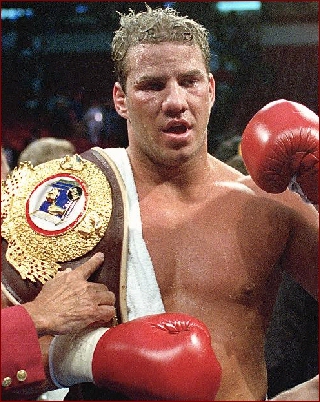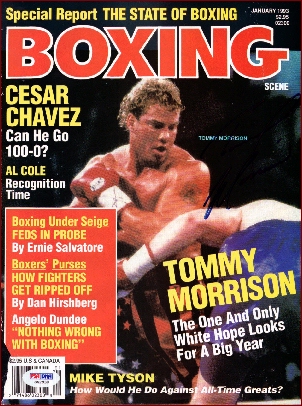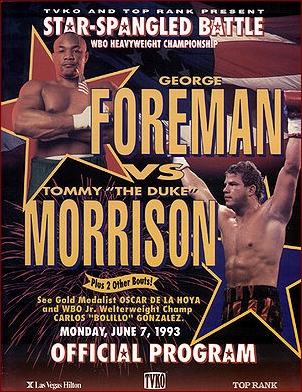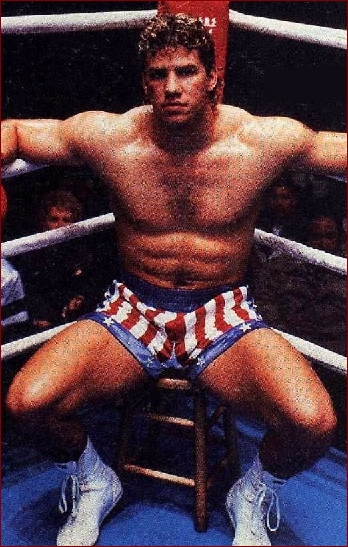
HOME - JOIN - NEWS - EVENTS - RANKINGS - SANCTIONING - RULES & REGULATIONS - ABOUT IAB - WEIGHTS - LINKS - CONTACT
TUESDAY, September 3rd, 2013, AT 8:40 PM/ PST
|
Former WBO Heavyweight Champion | ||
|
|
Former WBO heavyweight champion Tommy Morrison passed away on Sunday evening at the age of 44. ESPN's Elizabeth Merrill first reported the news on Monday afternoon, noting that the once-great boxer died in a hospital in Omaha, Nebraska. Morrison was born in Gravette, Arkansas. He was an Irish-American who was raised in Delaware County, Oklahoma. Since Morrison's older brother and two uncles were boxers, Morrison's father urged him to begin boxing locally at the age of ten. At the age of 13, he used a fake ID and entered fifteen "toughman" contests (the minimum age for contestants was 21). He later told The New York Times that he lost only one of these matches. In 1988, Morrison won the Regional Heavyweight Title – Kansas City Golden Gloves from Donald Ellis and advanced to the National Golden Gloves in Omaha, Nebraska, where he lost a split decision to Derek Isaman. Two weeks later, Morrison took part in the Western Olympic trials in Houston, Texas winning the Heavyweight Title and garnishing the "Most Outstanding Fighter" of the tournament. Two weeks after that at the Olympic Trials, held in Concord, California, Morrison lost a split decision to Ray Mercer, who would go on to win the gold medal at the Seoul Olympics. Morrison's combined professional and amateur record is 343–24–1, with 315 wins by knockout. Morrison started his professional boxing career on November 10, 1988, with a first-round knockout of William Muhammad in New York City. Three weeks later, he scored another first-round knockout. In 1989, Morrison had 19 wins and no losses, 15 by knockout. In 1989, actor Sylvester Stallone observed one of Morrison's bouts. Stallone arranged a script reading and cast Morrison in the movie Rocky V as Tommy "The Machine" Gunn, a young and talented protege of the retired Rocky Balboa. Originally an admirer of Rocky, Gunn's successes led him to goad Rocky into a street fight. In 1991, Morrison, already the recipient of much television exposure, won fights against opponents James Quick Tillis and former world champion Pinklon Thomas. He was given an opportunity to face fellow undefeated fighter Ray Mercer, the WBO title holder in a Pay Per View card held on October 18, 1991. Morrison suffered the first loss of his career, losing by 5th round knockout. Morrison had six wins in 1992, including fights with Art Tucker and Joe Hipp, who would later become the first Native American to challenge for the world heavyweight title. In the Hipp fight, held June 19, 1992, Morrison was suffering from what was later discovered to be a broken hand and broken jaw, but rallied to score a knockout in the ninth round. After two wins in 1993, including one over two-time world title challenger Carl "The Truth" Williams, Morrison found himself fighting for the WBO title again, against heavyweight boxing legend George Foreman, who was himself making a comeback. As both men were famed for their punching power, an exciting battle was expected, but Morrison chose to avoid brawling with Foreman and spent the fight boxing from long range. Morrison was able to hit and move effectively in this manner, and after a closely contested bout he won a unanimous 12-round decision and the WBO title. Morrison's first title defense was scheduled against Mike Williams, but when Williams withdrew on the night of the fight, Tim Tomashek stood in as a replacement. Although Tomashek had been prepared to fight as a backup plan, some news reports created the impression that he had just been pulled out of the crowd. The WBO later rescinded their sanctioning of this fight due to Tomashek's lack of experience. Almost immediately, talks of a fight with WBC champion Lennox Lewis began, but were halted when virtually unknown Michael Bentt upset Morrison in his next bout. Bentt knocked Morrison down three times, and the fight was stopped in the first round in front of a live HBO Boxing audience. Morrison recovered by winning three bouts in a row in 1994, but his last fight of the year, against Ross Puritty, ended with a draw. Morrison won three fights in 1995 before meeting former #1 contender Razor Ruddock. Ruddock dropped Morrison to his knees in the first round, but Morrison recovered to force a standing count in round two and compete on even terms for five rounds. In the sixth round, Ruddock hurt Morrison with a quick combination, but just as it seemed Morrison was in trouble, he countered with a tremendous hook that put Ruddock on the canvas. Ruddock regained his feet, but Morrison drove him to the ropes and showered him with an extended flurry of blows. Just as the bell was about to sound, the referee stepped in and declared Morrison the winner by TKO. The much-anticipated fight with Lewis, who had also lost his world championship, finally took place following the Ruddock match. Morrison was knocked out in the sixth round. Scheduled to fight against Arthur Weathers, the Nevada Athletic Commission determined that Morrison had tested positive for HIV. The Commission suspended Morrison from boxing in Nevada. Several days later, Morrison's physician administered a test, which was also positive. At a news conference on February 15, 1996, Morrison said he had contracted HIV because of a "permissive, fast and reckless lifestyle". Morrison stated that he would "absolutely" never fight again. At another news conference on September 19, 1996, in Tulsa, Oklahoma, Morrison announced he wished to fight "one last time" when he could find an opponent, the proceeds of which would benefit his KnockOut AIDS Foundation. A spokesperson for the Oklahoma Professional Boxing Advisory Board said Morrison would probably not be permitted to fight in Oklahoma because of his Nevada suspension. To treat his infection, Morrison said he took antiretroviral medication, which reduced his viral load to almost undetectable levels. In 2006, Morrison said his HIV tests had been false positives. The Nevada commission's medical advisory board reviewed Morrison's 1996 test results and concluded they were "ironclad and unequivocal." Morrison said he tried to get a copy of the original test result but was unable to do so: "I don't think it ever existed." The Commission said Morrison could "contact the laboratory, and they would immediately release the results to him." Beginning in 2007, Morrison began fighting again. After passing medical tests in Texas, West Virginia licensed Morrison to fight in the state, and in February 2007 he fought and beat John Castle. Castle had also been the 2004 IKF/TKO Amateur North American Classic Champion. Castle had won the Amateur title in Orlando Florida, USA on August 15th when he defeated Chuck Baxter of Dubuque, Iowa, USA by split decision 29-28, 28-29 & 29-28. However, Castle had to forfeit the Amateur title because on November 4th, 2004 it was discovered that he had "THREE" Professional matches before the North American Classic "AMATEUR" Tournament. He made his Pro Boxing debut on October 7th 2003 against Damian Mansfield at the 8 Second Saloon in Indianapolis, Indiana winning by TKO at 55 seconds into the second round. Since then he has won all 3 of his Pro Boxing bouts. Baxter's loss was made a win and Castle was given no credit for his win. This took Castle's record from 11-0 to 10-0. Castle made his Pro Kickboxing debut in November, 2004. When he met Morrison his Professional Boxing record was 4-2. The Morrison bout was his last bout. Morrison tested negative for HIV four times in January 2007. On July 22, 2007, the New York Times reported that Morrison took two HIV tests in 2007 plus a third specifically for the Times. HIV experts reviewed the three tests and concluded that the 1996 result had been a false positive. But ringside doctors expressed doubt, implying that the negative results were not in fact based on Morrison's blood. However, the experts agreed that no one is ever cured of HIV, so if his tests in 2007 showed that he was negative, then he was never infected with HIV. In January 2011, the RACJ, the boxing commission for the province of Quebec, required that Morrison take a supervised HIV test in advance of a scheduled 2011 fight. Morrison declined to take the test because he said it would be the same kind of test administered by Nevada in 1996. Instead, Morrison invited the Quebec commission to attend a public test, but the commission did not come. Morrison stated that if Quebec refused to license him, he would "take the dog and pony show somewhere else." On September 1, 2013, Morrison died at a hospital in Omaha, Nebraska at the age of 44. Although an official cause of death has not been made public, Morrison's wife Trisha told MMADirt.com that he died of "acute respiratory and metabolic acidosis and multiple organ failure." She said Morrison had Miller Fisher Syndrome/Guillain Barre Syndrome. |
|

Tommy
" The Duke " Morrison WBO Heavyweight Champion
Tommy Morrison's Boxing Record
After All These Years,
There Are STILL Questions About HOW Tommy Died.
So The Question Remains...
"Did Tommy Morrison REALLY Die Of HIV?"


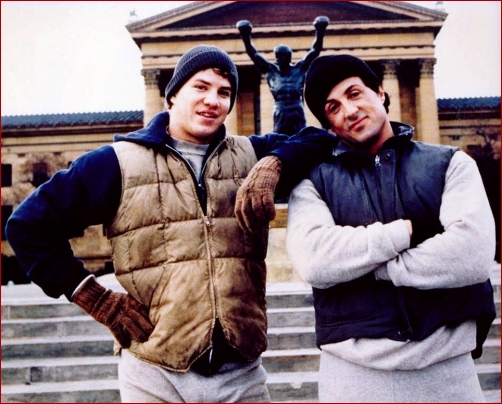
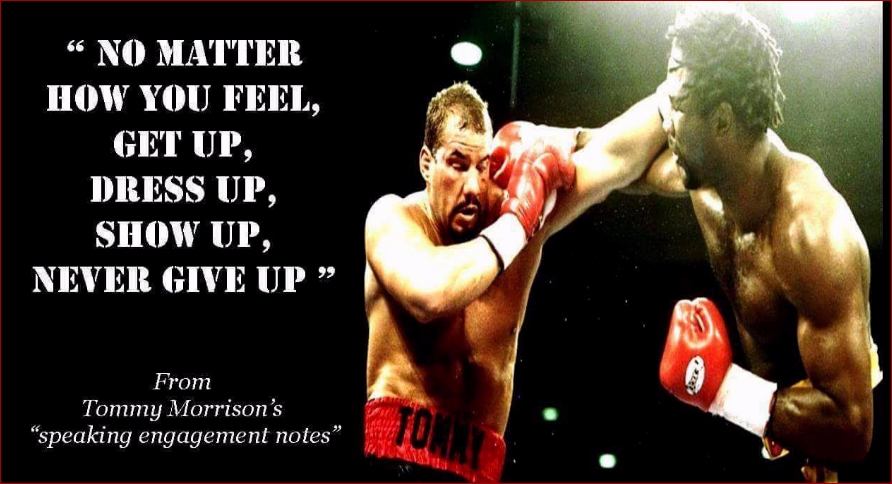


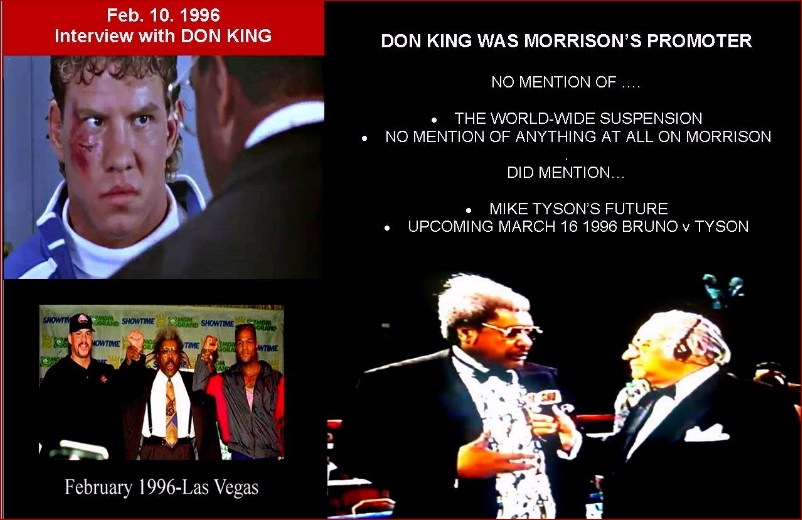


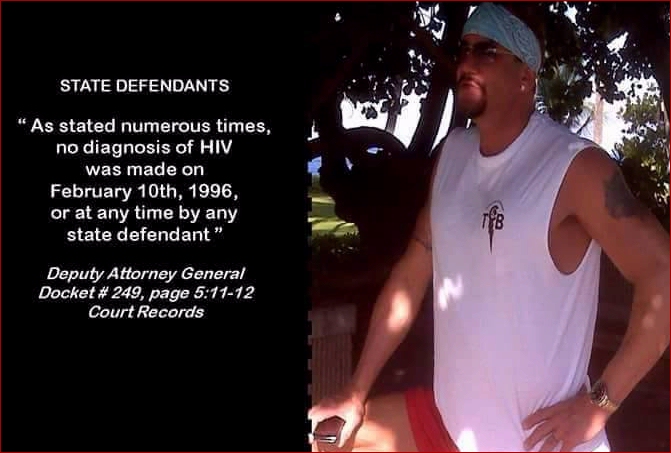
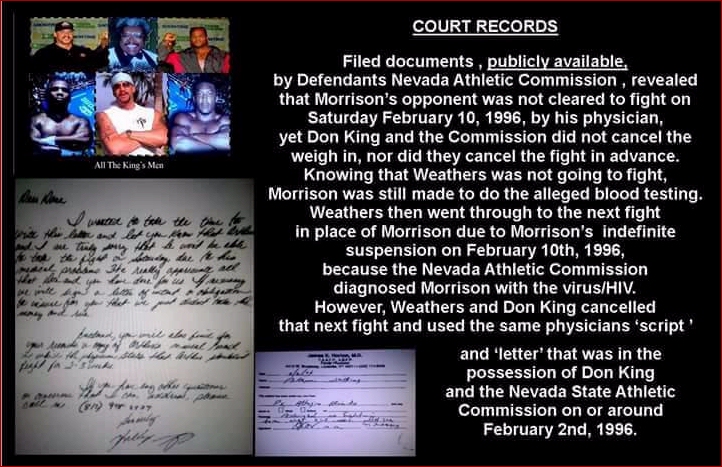
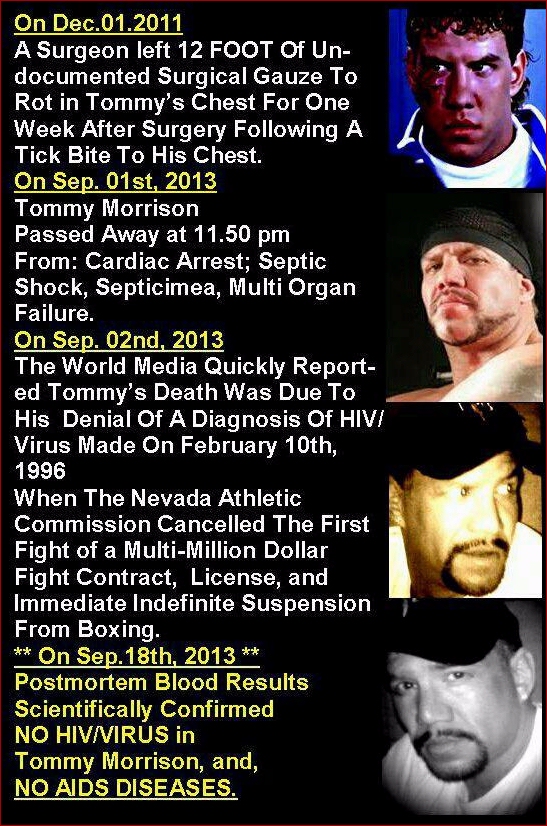
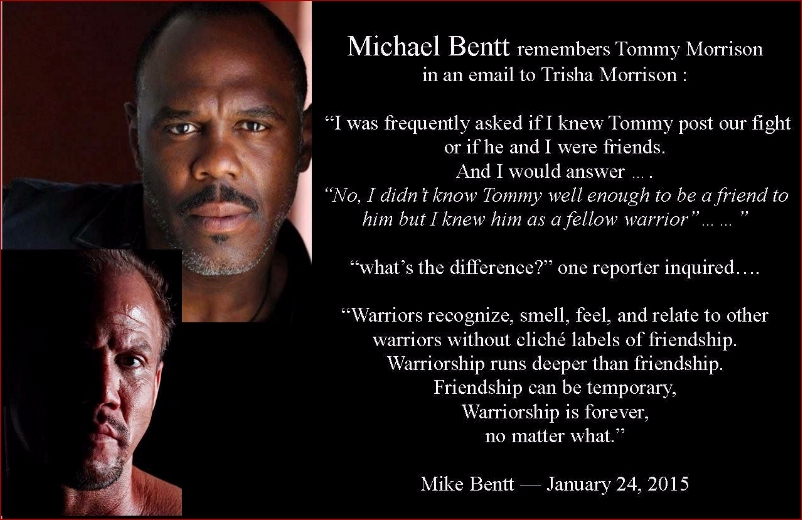
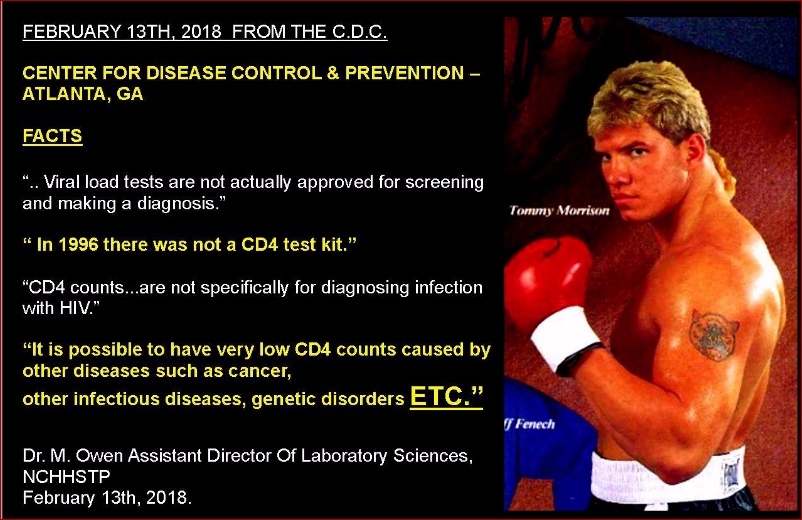
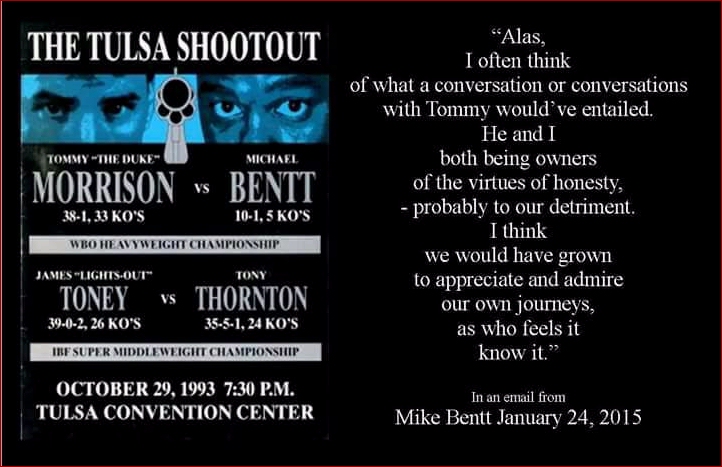
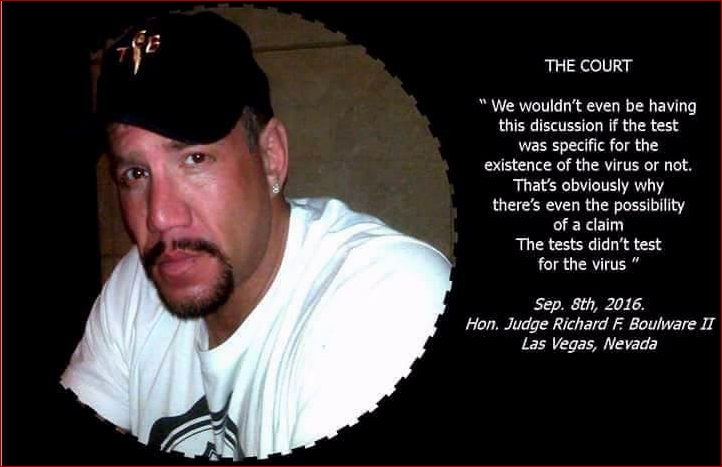
HOME - NEWS - EVENTS - RANKINGS - SANCTIONING - RULES & REGULATIONS - ABOUT IAB - WEIGHTS - LINKS - CONTACT

